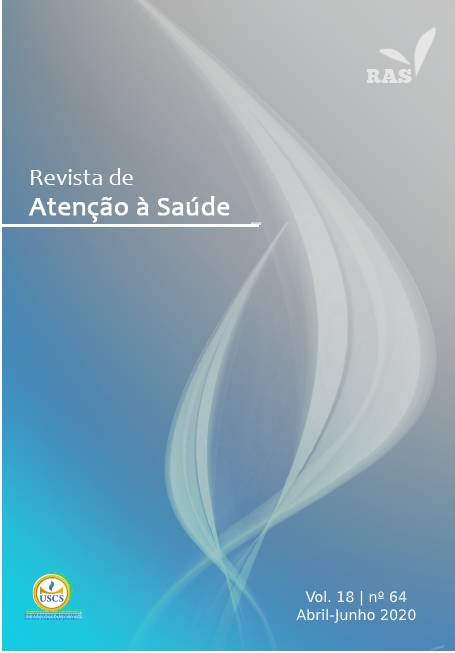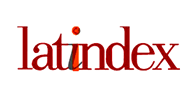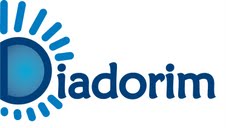INFLUÊNCIA DO ALEITAMENTO MATERNO NA DEPRESSÃO PÓS-PARTO: REVISÃO SISTEMATIZADA
DOI:
https://doi.org/10.13037/ras.vol18n64.6380Keywords:
Pós-parto, Depressão, AmamentaçãoAbstract
Introdução: A amamentação exclusiva beneficia a mãe e o bebê. Fatores psicológicos estão envolvidos na sua iniciação e duração. Objetivos: Identificar fatores associados à não iniciação e à interrupção da amamentação. Desenvolvimento: Revisão sistematizada a partir de pesquisa nas bases de dados eletrônicas: Medline (PubMed), LILACS e SciELO, usando como estratégia de busca: "Postpartum Depression"[Mesh] AND "Breastfeeding"[Mesh], nos últimos cinco anos. Essa revisão incluiu 15 artigos sendo 11 coortes (10 prospectivos e 1 retrospectivo), 3 estudos transversais e 1 ensaio clínico. A amamentação foi associada a fatores observados no pré-natal e à depressão pós-parto. Conclusões: O pré-natal é importante na identificação de fatores relacionados ao estímulo ao aleitamento materno, como gravidez na adolescência, maior peso materno, início tardio do pré-natal, tabagismo e depressão pré-natal. A depressão pós-parto está associada à interrupção da amamentação, porém, por existirem fatores de risco em comum entre as duas e ainda não se pode concluir se a cessação da amamentação é causa ou consequência da depressão pós-parto.
Downloads
References
Figueiredo B, Canário C, Field T. Breastfeeding is negatively affected by prenatal depression and reduces postpartum depression. Psychol Med. 2014; 44(5):927-36. doi:10.1017/S0033291713001530.
Niwayama R, Nishitani S, Takamura T, Shinohara K, Honda S, Miyamura T et al. Oxytocin Mediates a Calming Effect on Postpartum Mood in Primiparous Mothers. Breastfeed Med. 2017; 12:103-9. doi:10.1089/bfm.2016.0052.
Nam JY, Choi Y, Kim J, Cho KH, Park EC. The synergistic effect of breastfeeding discontinuation and cesarean section delivery on postpartum depression: a nationwide population-based cohort study in Korea. J Affect Disord. 2017; 218:53-8. doi:10.1016/j.jad.2017.04.048.
World Health Organization, 2001. Expert consultation on the optimal duration of exclusive breastfeeding. World Health Organization, Geneva, Switzerland. Disponível em: https://www.who.int/nutrition/publications/optimal_duration_of_exc_bfeeding_report_eng.pdf Acesso em 10Jan2019.
Silva CS, Lima MC, Sequeira-de-Andrade LAS, Oliveira JS, Monteiro JS, Lima NMS et al.Association between postpartum depression and the practice of exclusive breastfeeding in the first three months of life. J Pediatr (Rio J). 2017; 93(4):356-64. doi:10.1016/j.jped.2016.08.005.
Lara-Cinisomo S, Mc Kenney K, Di Florio A, Meltzer-Brody S. Associations between postpartum depression, breastfeeding, and oxytocin levels in latina mothers. Breastfeed Medicine. 2017; 12(7):436-42. doi: 10.1089/bfm.2016.0213.
Hahn-Holbrook J, Haselton MG, DunkelSchetter C, Glynn LM. Does breastfeeding offer protection against maternal depressive symptomatology? A prospective study from pregnancy to 2 years after birth. Arch WomensMent Health. 2013;16(5):411-22. doi:10.1007/s00737-013-0348-9.
Pope CJ, Mazmanian D, Bédard M, Sharma V. Breastfeeding and postpartum depression: Assessing the influence of breastfeeding intention and other risk factors. J Affect Disord. 2016; 200:45-50. doi:10.1016/j.jad.2016.04.014.
Gregory EF, Butz AM, Ghazarian SR, Gross SM, Johnson SB. Are unmet breastfeeding expectations associated with maternal depressive symptoms? Acad Pediatr. 2015; 15(3):319-25. doi:10.1016/j.acap.2014.12.003.
Brown A, Rance J, Bennett P. Understanding the relationship between breastfeeding and postnatal depression: the role of pain and physical difficulties. J AdvNurs. 2016; 72(2):273-82. doi:10.1111/jan.12832.
Woolhouse H, James J, Gartland D, McDonald E, Brown SJ. Maternal depressive symptoms at three months postpartum and breastfeeding rates at six months postpartum: Implications for primary care in a prospective cohort study of primiparous women in Australia. Women Birth. 2016; 29(4):381-7. doi:10.1016/j.wombi.2016.05.008.
Imširagić AS, Begić D, Sarajlić I, Palavra IR, Orban M. Predictors of exclusive breastfeeding 6-9 weeks after delivery: a prospective cohort study. Psychiatr Danub. 2016; 28(4):395-403.
Cox EQ, Stuebe A, Pearson B, Grewen K, Rubinow D, Meltzer-Brody S. Oxytocin and HPA stress axis reactivity in postpartum women. Psychoneuroendocrinology. 2015; 55:164-72. doi:10.1016/j.psyneuen.2015.02.009.
Reifsnider E, Flowers J, Todd M, BeverBabendure J, Moramarco M. The relationship among breastfeeding, postpartum depression, and postpartum weight in Mexican american women. J Obstet Gynecol Neonatal Nurs. 2016; 45(6):760-71. doi:10.1016/j.jogn.2016.05.009.
Ahmed AH, Roumani AM, Szucs K, Zhang L, King D. The effect of interactive web-based monitoring on breastfeeding exclusivity, intensity, and duration in healthy, term infants after hospital discharge. J Obstet Gynecol Neonatal Nurs. 2016; 45(2):143-54. doi:10.1016/j.jogn.2015.12.001.
Cox JL, Holden JM, Sagovsky R. Detection of postnatal depression. Development of the 10-item Edinburgh Postnatal Depression Scale. Br. J. Psychiatry. 1987; 150:782–6.
Yusuff AS, Tang L, Binns CW, Lee AH. Breastfeeding and postnatal depression: a prospective cohort study in Sabah, Malaysia. J Hum Lact. 2016; 32(2):277-81. doi:10.1177/0890334415620788.
Borra C, Iacovou M, Sevilla A. New evidence on breastfeeding and postpartum depression: the importance of understanding women’s intentions. Matern Child Health J. 2015; 19(4): 897–907.doi:10.1007/s10995-014-1591-z
Escobar AMU, Ogawa AR, Hiratsuka M, Kawashita MY, Teruya PY, Grisi S et al. Aleitamento materno e condições socioeconômico-culturais: fatores que levam ao desmame precoce. Rev. Brasileira de Saúde Materno Infantil. 2002; 2(3): 253-61. doi:10.1590/S1519-38292002000300006.
. Kummer SC, Giugliani ER, Susin LO, Folletto JL, Lermen NR, Wu VY et al. Evolução do padrão de aleitamento materno. Rev. Paul Saúde Pública. 2000; 34(2): 143-8. doi.org/10.1590/S0034-89102000000200007.
Downloads
Published
Issue
Section
License
Policy Proposal for Journals offering Free Delayed Access
Authors who publish in this magazine agree to the following terms:
- Authors maintain the copyright and grant the journal the right to the first publication, with the work simultaneously licensed under a Creative Commons Attribution License after publication, allowing the sharing of the work with recognition of the authorship of the work and initial publication in this journal.
- Authors are authorized to assume additional contracts separately, for non-exclusive distribution of the version of the work published in this magazine (eg, publishing in institutional repository or as a book chapter), with the acknowledgment of the authorship and initial publication in this journal.
- Authors are allowed and encouraged to publish and distribute their work online (eg in institutional repositories or on their personal page) at any point before or during the editorial process, as this can generate productive changes, as well as increase impact and citation of the published work (See The Effect of Open Access).









